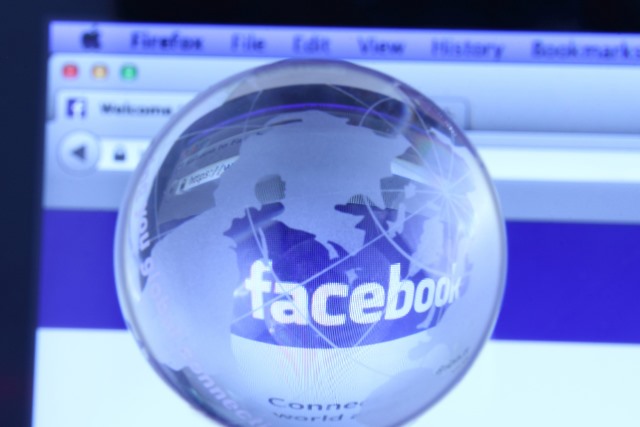
AdBlock Plus is deemed legal -- again
AdBlock Plus has already been in court once this year proving itself to be legal. A German court heard a case brought by a group of TV companies who felt they were getting a poor deal when their ads were blocked.
The internet has something of a love/hate relationship with ad blockers. While surfers love the fact that they clean up the browsing experience, content creators have a source of income crimped. To try to keep everyone happy, AdBlock Plus came up with the idea of Acceptable Ads -- a sort of halfway house between blocking and permitting ads -- and this was something that featured in this most recent court case.

USA Freedom Act is blocked but NSA will stop phone data collection anyway
Privacy advocates in the US -- and, indeed, the world over -- had pinned great hopes on the USA Freedom Act bringing to an end the mass collection of phone records. Hitting the Senate for the second time this year, the Act was blocked in a 57-42 vote.
Section 215 of the Patriot Act expires on 31 May, and it had been hoped that the hype and momentum surrounding it would have helped push the USA Freedom Act through. Despite making through the House of Representative, the Bill failed to reach the 60 vote goal it needed to hit. But as of 1 June, the NSA will still not be collecting phone data. So what happened?

Hackers leak the sexual preferences of millions of online daters to the dark web
The details of millions of users of Adult FriendFinder -- the dating site with the tagline "hookup, find sex or meet someone hot now" -- have been leaked by hackers. Channel 4 reports that details of nearly 4 million users were exposed on the dark web after a security breach.
As well as information such as names, email addresses, and dates of birth, hackers also gained access to personal information such as users' sexual preferences and details of their willingness to conduct extramarital affairs. The compromised data includes accounts that had been deleted by their owners, and the hackers are now threatening to hit out at victims.

Just about everyone thinks Internet.org is a terrible idea
Mark Zuckerberg probably thought the world would bow down to him when Facebook announced the Internet.org project. The idea of bringing internet access to those in developing parts of the world seems, on the face of it, to be something of an exercise in altruism. Of course, it's not quite that simple.
Many companies complain that the project goes against the idea of net neutrality -- a claim that Zuckerberg vehemently denies. But now the vocal opposition to Internet.org is getting louder. Privacy group Electronic Frontier Foundation (EFF) has several concerns with the project, and a collective of 67 digital rights groups has signed a letter to the Facebook founder expressing concerns about the approach Internet.org is taking.

Facebook rides roughshod over privacy laws
Facebook and privacy are not words that generally belong in the same sentence, but a Belgian watchdog has expressed surprise at just how little regard for European law the social network shows. The Privacy Protection Commission says "Facebook tramples on European and Belgian privacy laws", and warns users to take action.
Mark Zuckerberg's site is accused to tracking users even if they are not logged into a Facebook account, and sidestepping questions from European regulators. Although the Privacy Protection Commission is not able to impose fines for failure to abide by European law, it is in a position to offer advice -- and the advice to people is to use software to block Facebook's tracking regardless of whether they use the site or not.

European telecom firms may block all mobile ads, spelling trouble for Google
Google is facing something of a European revolution as mobile companies consider blocking ads on a massive scale. Israeli company Shine has developed software that blocks mobile ads, and it has gained the attention and support of a number of telecom companies in Europe.
Talking to the Financial Times, one wireless carrier said that the software had been installed at its data centers and could be enabled by the end of the year. With the potential to automatically block most ads on web pages and within apps, the repercussion of the ad boycott could be huge as mobile providers try to wrestle control from the likes of Google.

Intermex allegedly fires employee for removing privacy-infringing app
A Californian woman is suing her former employee after being fired for deleting an app that was tracking her movements at all times. The company instructed her to run the app, which monitored her via GPS, 24 hours a day.
According to the lawsuit, plaintiff Myrna Arias alleges that her employer, money transfer firm Intermex, fired her after she uninstalled job management app Xora. She also alleges that her boss John Stubits boasted about being able to monitor her during out-of-work hours.

Leading academics call for greater transparency about Google's Right To Be Forgotten
Just yesterday Google revealed that it rejects most Right To Be Forgotten requests it receives. In publishing yet another transparency report, the search giant will have hoped to have put to bed any questions that users and critics may have had. While the report may have satisfied some, it did not go anywhere near far enough for one group of academics.
A total of 80 university professors, law experts and technology professionals have written an open letter to Google demanding greater transparency. The letter calls upon the company to reveal more about how Right To Be Forgotten requests are handled so that the public is aware of the control that is being exerted over "readily accessible information".

Google rejects most Right To Be Forgotten requests
One year ago, a European court ruled that Google should comply with requests from individuals to remove certain results from search results; it became known as the Right To Be Forgotten. Twelve months after the initial ruling, Google has published a new transparency report that shows it rejects more requests than it complies with.
The Right To Be Forgotten stemmed from a case brought by Spaniard Mario Costeja González who wanted Google to remove search results that pointed to online articles about his home being repossessed. There then followed an influx of requests after Google set up an online form to provide individuals with an easy way to get in touch.

Anonymous Tor Cloud project closes down
The Tor browser is used by many to stay anonymous online -- and it's something that has been embraced by the likes of WikiLeaks as a way to safely gather information whilst hopefully avoiding the surveillance of the NSA. One lesser known project from the same stables is the Tor Cloud service, and Tor has announced that it is closing down.
Based on the Amazon EC2 cloud computing platform, Tor Cloud provided a way to share computing resources and allow faster uncensored access to the internet. However, the project is plagued with "at least one major bug ... that makes it completely dysfunctional" and after failing to find anyone to undertake the work, the decision was taken to shutter Tor Cloud. This does not mean that Tor itself is dead -- far from it -- and developers are being encouraged to create their own forked versions of Tor Cloud.

Europe moves to end geo-blocking online content
While the internet is supposed to be an open-access resource, there is a great deal of content which can only be accessed in certain parts of the world. To comply with licensing rules, broadcasters in particular will often restrict access to their services to specific countries, but in Europe there are plans to bring such geo-blocking to an end.
Described as "a discriminatory practice used for commercial reasons" geo-blocking is derided by the European Commission as little more than a money-making venture. The aim is to create what has been dubbed a Digital Single Market, breaking down barriers and simplifying regulation.

France gains sweeping NSA-style surveillance powers
The French government has voted in favor of greater powers of surveillance, giving it intelligence-gathering capabilities on a par with the NSA. The move came in the wake of the Charlie Hebdo attack which led to the deaths of 12 people and prompted the Je Suis Charlie support campaign.
The new laws allow for NSA-style mass collection of metadata online as well as setting up the National Commission for Control of Intelligence Techniques (CNCTR) to oversee data collection. It has been criticized by some as being the French equivalent of the Patriot Act and the ruling Socialist Party is accused of prying too far into the private lives of normal people in the name of counter-terrorism.

WikiLeaks unveils updated anonymous data submission system
WikiLeaks prides itself on bringing information to public attention that might otherwise stay hidden. In order to get this information out in the open, the organization is reliant on a wide range of sources. The sort of stories which WikiLeaks deals with would often not come to light if those breaking the stories could not be guaranteed anonymity.
A few days ago the Sun newspaper revealed that it was using SecureDrop as a way for people to give anonymous tips about stories, and it was touted at the time as being a WikiLeaks-style tool. Now Julian Assange has announced that WikiLeaks has upgraded its own submission tool to offer even greater security.

The Sun newspaper launches anonymous Tor-based WikiLeaks-style SecureDrop
The likes of Julian Assange's WikiLeaks have set the standard for blowing the lid on huge stories based on tips from anonymous sources. Whistle-blowers such as Edward Snowden have brought to public attention stories which would otherwise have been kept hidden from the public, and it has been with the help of newspapers such as the Guardian that this information has been disseminated around the world.
Other newspapers are keen to ride on the coattails of those blazing a trail in the world of investigative journalism, and the latest to join the party is The Sun. Today, Murdoch-owned News Corp's newspaper and website launches SecureDrop -- a way for whistle-blowers to anonymously leave tip-offs that can be further investigated.

Corporate privacy policies are out of step with protecting sensitive data
Technology makes it easier than ever for businesses to collect data but that also means they have greater responsibility for looking after it.
Data protection specialist Druva has released the results of a new study conducted by Dimensional Research which examines companies' efforts to protect sensitive data, the challenges they face ensuring data privacy and gathers respondent views on protecting data privacy in the cloud.
